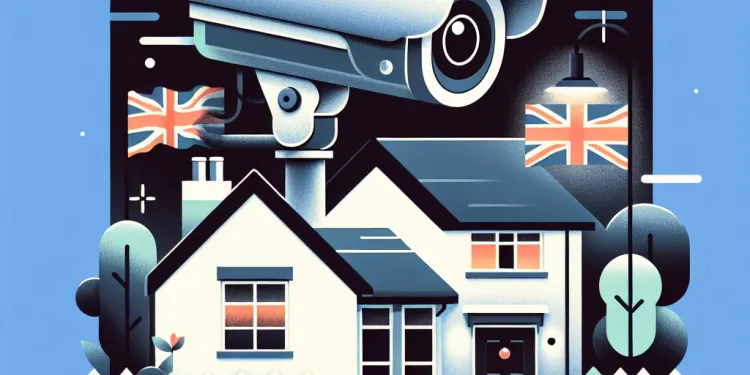
Find A Professional
More Items From Ergsy search
-

How can I tell if a security camera is pointing at my property?
Relevance: 100%
-

Is it legal for my neighbor to have a security camera facing my property?
Relevance: 93%
-
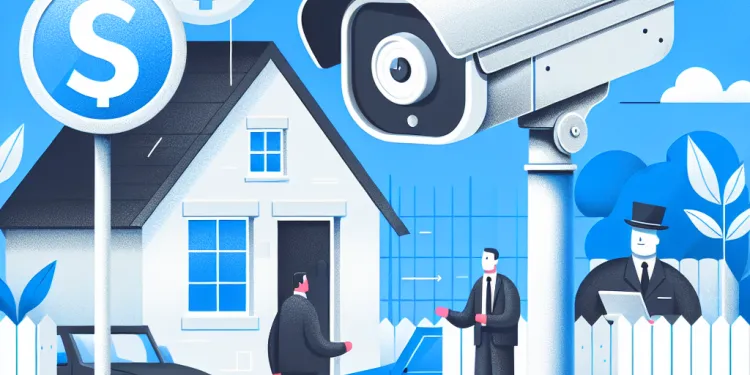
Is it legal for me to block the view of my neighbour's security camera?
Relevance: 92%
-
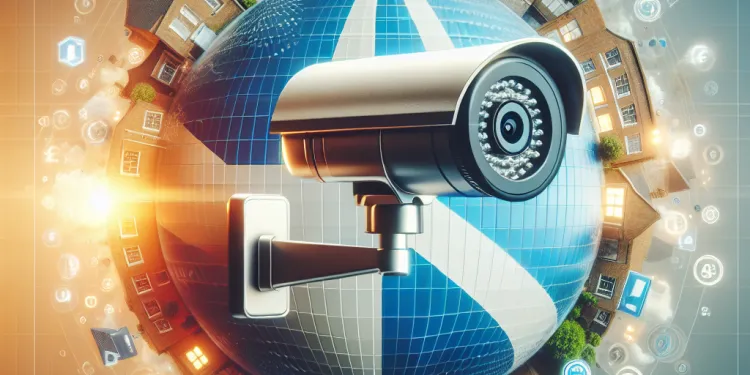
Is redirecting a security camera a solution?
Relevance: 91%
-
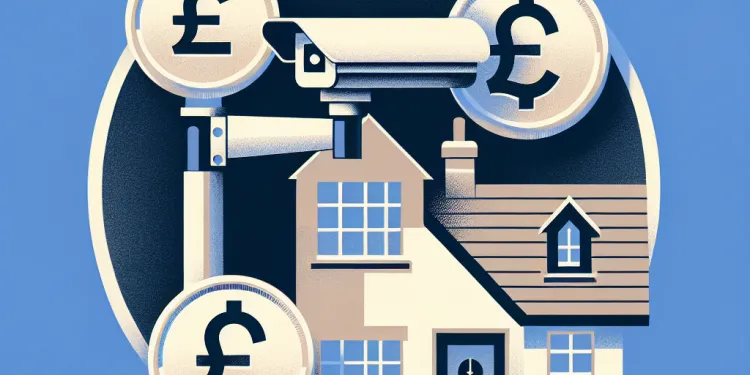
What if my neighbor claims the camera is for security but it points towards my property?
Relevance: 88%
-

Can I ask my neighbour to reposition their security camera?
Relevance: 84%
-
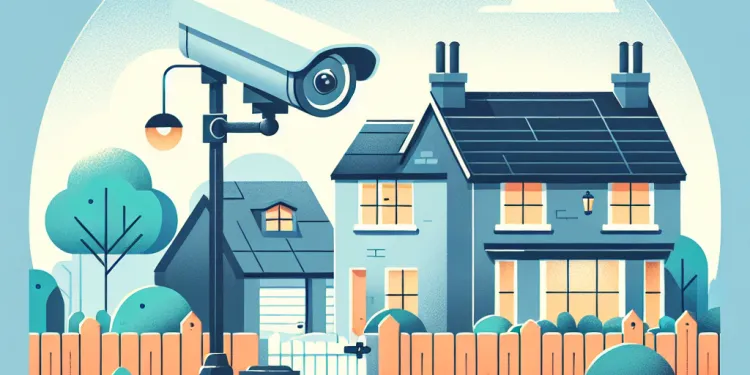
Can my neighbour legally point a security camera at my property?
Relevance: 75%
-
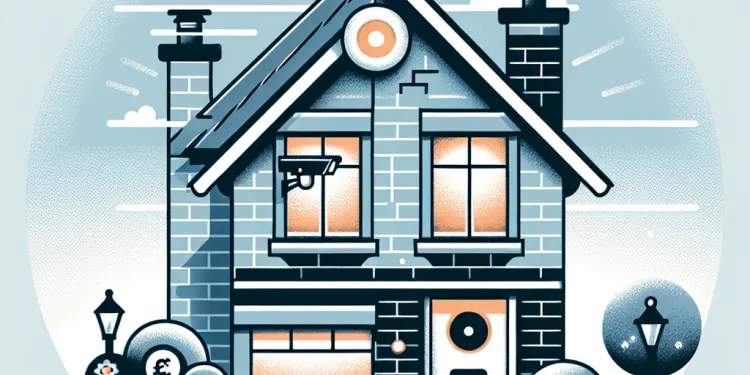
Do neighbours need to inform me if their cameras record my property?
Relevance: 71%
-
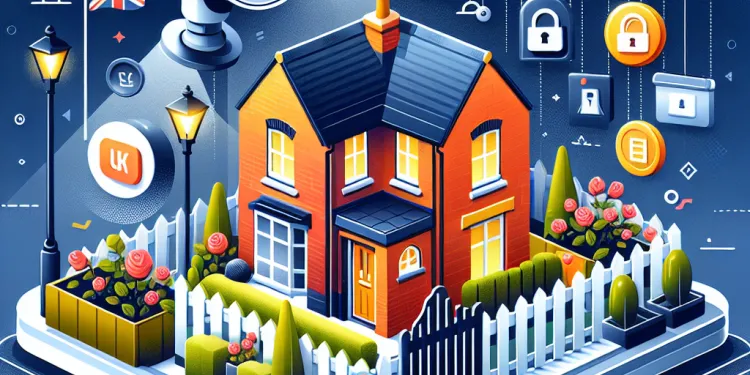
How can I stop my neighbour's security camera pointing at my property?
Relevance: 69%
-
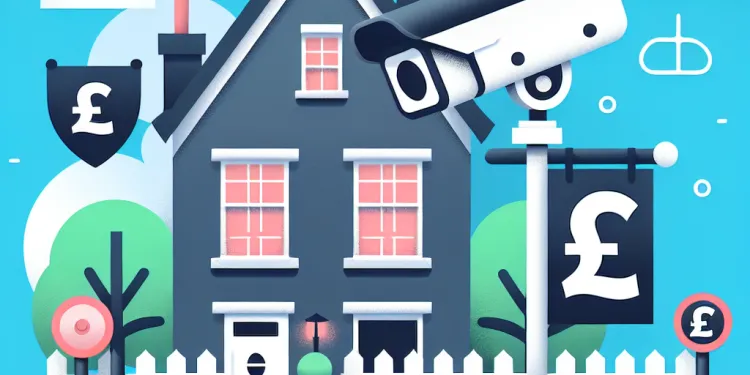
What steps can I take if my neighbour refuses to reposition their security camera?
Relevance: 68%
-
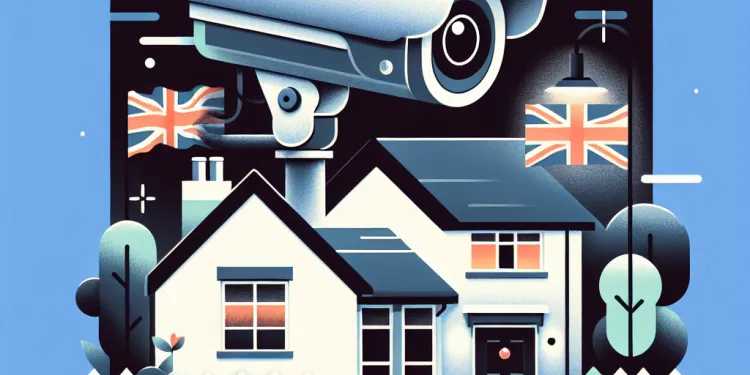
What should I do first if my neighbor's security camera is pointed at my property?
Relevance: 67%
-
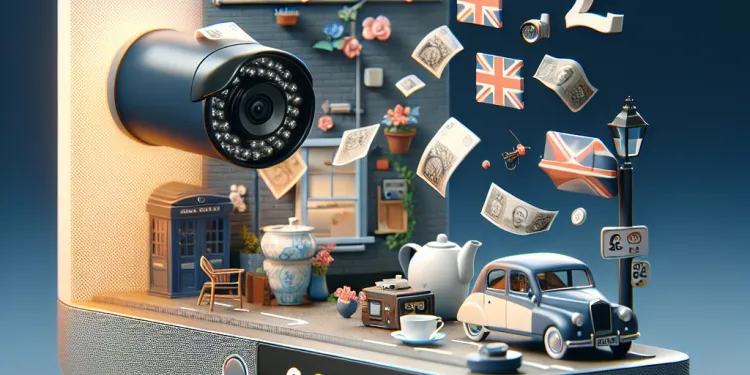
Can I install my own camera to monitor the area in question?
Relevance: 67%
-

Are there privacy laws that protect me from neighbor's cameras?
Relevance: 67%
-
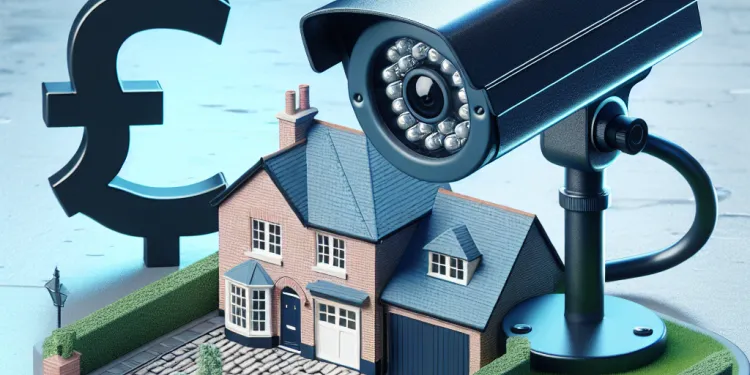
Is my concern valid if the camera is only monitoring my driveway?
Relevance: 66%
-
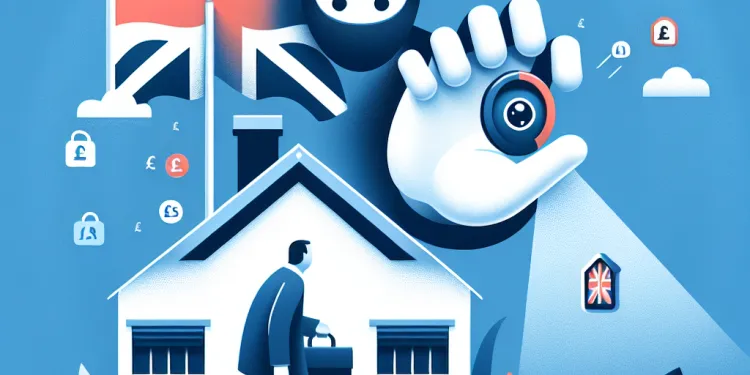
Can I ask for legal help to get my neighbor’s camera moved?
Relevance: 65%
-

Can I block the view of my neighbor's camera with physical barriers?
Relevance: 64%
-

Is it advisable to discuss camera placement before it becomes an issue?
Relevance: 64%
-

Does a Ring Doorbell Camera work at night?
Relevance: 62%
-
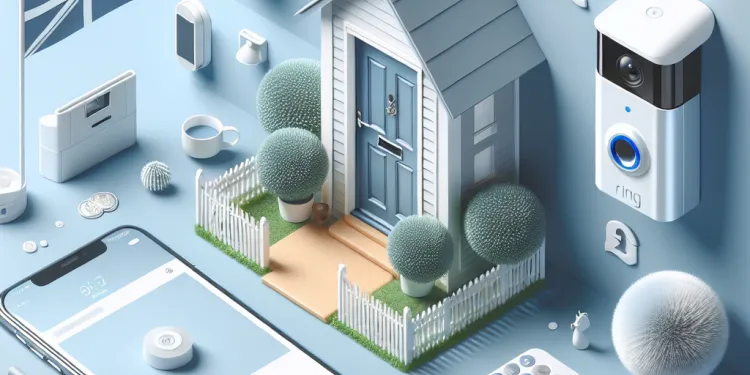
How do Ring Doorbell Cameras work?
Relevance: 62%
-

Can technology help in blocking the camera's view?
Relevance: 60%
-
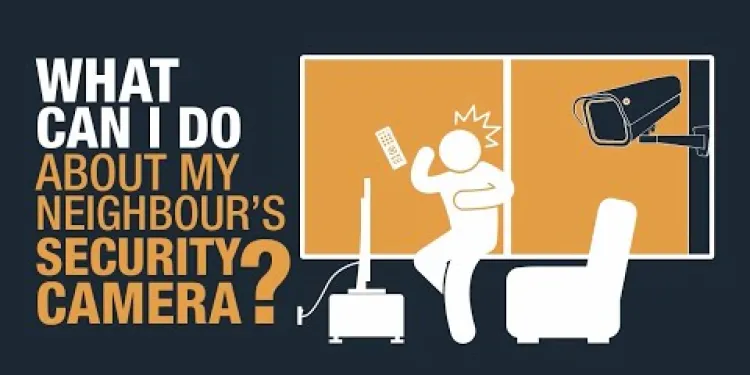
What can I do about my neighbour's security camera?
Relevance: 59%
-

How secure is the Ring Doorbell Camera system?
Relevance: 59%
-
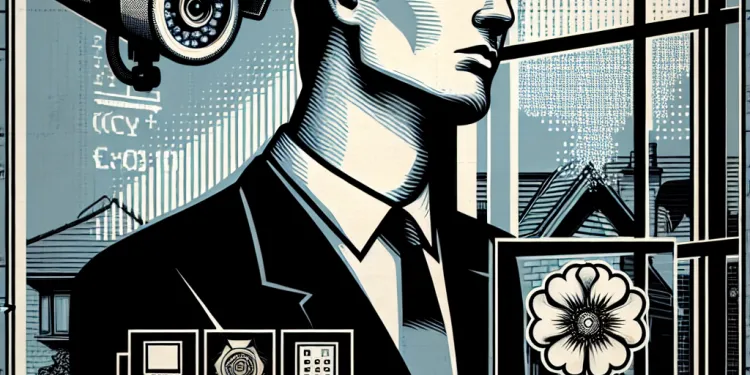
Should I contact the authorities if my neighbor refuses to adjust their camera?
Relevance: 59%
-
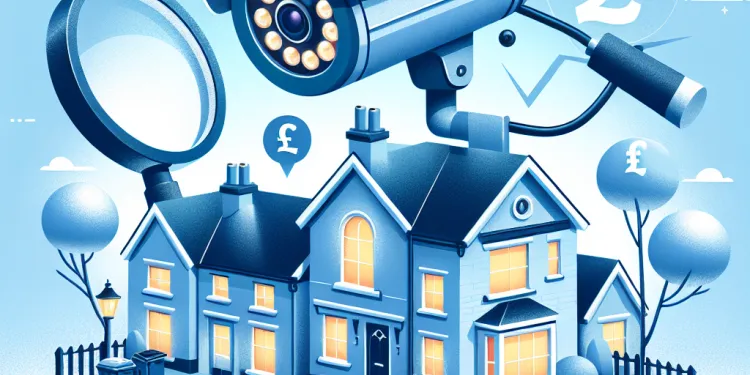
Can my neighbour use footage from their security camera as evidence in disputes?
Relevance: 57%
-

Is the video quality of a Ring Doorbell Camera good?
Relevance: 57%
-

Mortgage on Inherited Property - How we can help you with the finance
Relevance: 56%
-
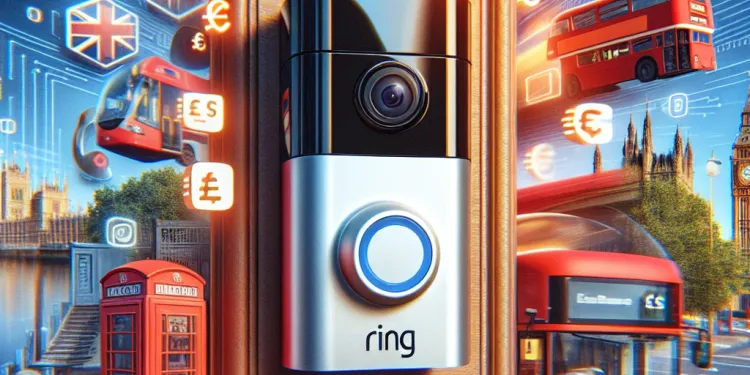
How does a Ring Doorbell Camera work?
Relevance: 53%
-
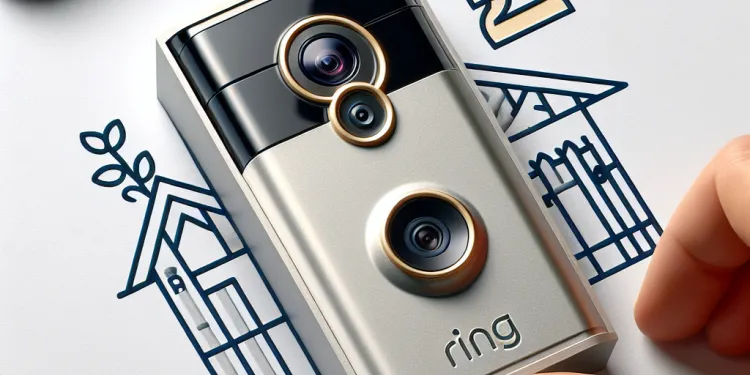
What is a Ring Doorbell Camera?
Relevance: 53%
-

What can I do about my neighbour's security camera?
Relevance: 52%
-
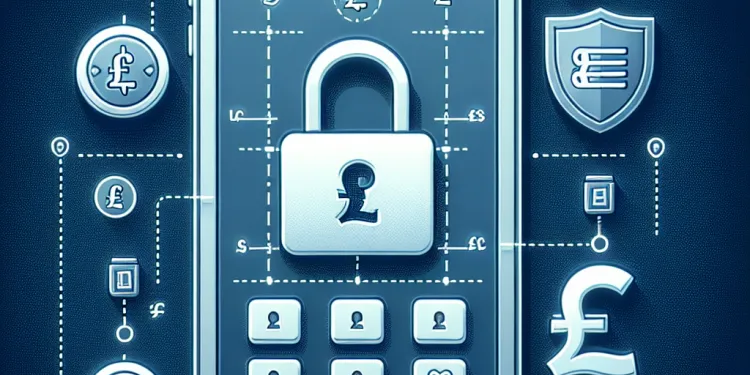
How do Monzo and Revolut keep their apps secure?
Relevance: 52%
-

Does the reform address uninhabitable properties?
Relevance: 49%
-
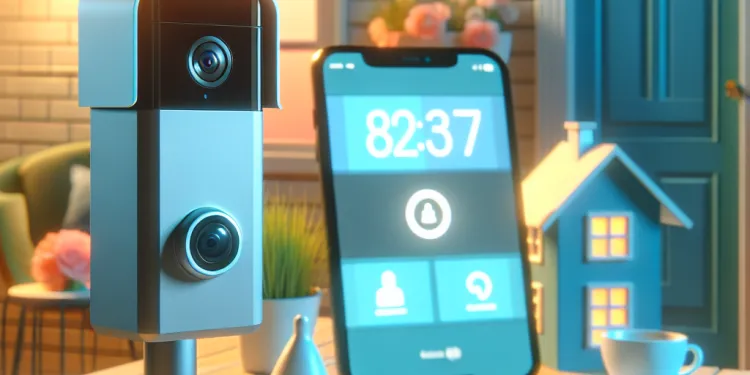
What happens if my Ring Doorbell Camera is stolen?
Relevance: 47%
-

Are there new guidelines for property maintenance?
Relevance: 47%
-

How does council tax relate to wealth in the UK?
Relevance: 46%
-

Does owning property abroad affect UK inheritance tax?
Relevance: 45%
-

Can neighborhood associations help resolve this issue?
Relevance: 44%
-

Are landlords required to provide energy performance certificates?
Relevance: 43%
-
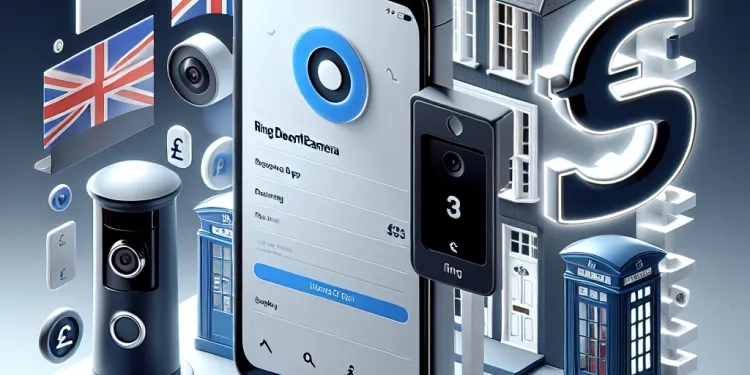
Is the Ring app necessary for using a Ring Doorbell Camera?
Relevance: 43%
-

How can I disable my neighbour's security camera?
Relevance: 41%
-

How to Buy property with your children under the age of 18 and get Buy to Let Mortgage.
Relevance: 40%
Understand the Legal Context
In the UK, privacy is a significant concern, and the use of security cameras is regulated under the Data Protection Act 2018. If a neighbor's security camera is pointed at your property, the first step is to familiarize yourself with the legal context. This law requires users of CCTV systems to ensure they respect the privacy rights of others. If the camera records or collects images beyond the user's property, it falls within the data protection laws, which mandate certain obligations, including the display of signs indicating video recording.
Communicate with Your Neighbor
Approaching the situation calmly and diplomatically is essential. The first step should be to have a friendly conversation with your neighbor. There might be a legitimate reason for the camera's positioning, and your neighbor might not be aware of the issue. Express your concerns calmly and seek a resolution. They may be unaware of the intrusion and could be willing to adjust the camera angle or set privacy masks to restrict the recording area, which may solve the problem amicably.
Seek Mediation
If a direct conversation doesn’t resolve the issue, consider involving a neutral third party. Mediation services are available which can help facilitate discussions between you and your neighbor. Community mediation services often help resolve disputes without the need for formal legal action, promoting understanding and cooperation. This step not only aids in conflict resolution but also helps maintain a good relationship with your neighbor.
Consult Legal Advice
If the situation remains unresolved, it may be necessary to seek legal advice. Consulting with a legal expert can provide clarity on your rights and the steps you can take. A solicitor can advise whether your neighbor is in breach of the Data Protection Act or other privacy laws. Legal guidance can also help navigate any proceedings if formal action becomes necessary to protect your privacy.
Report to the ICO
If all else fails and you believe your data rights are being infringed, you can report the issue to the Information Commissioner's Office (ICO). The ICO is responsible for enforcing privacy laws in the UK. They can investigate your complaint and determine whether your neighbor is violating data protection laws. While the ICO does not resolve individual disputes, their involvement can prompt compliance and resolution of privacy concerns.
Maintain Evidence
Throughout the process, maintaining records of all communications and actions taken is crucial. Keep detailed notes of conversations, take photographs of the camera setup, and document any other relevant information. Should formal action become necessary, having a comprehensive record will support your claims and strengthen your case. Keeping evidence organized ensures that your complaint is well-founded and facilitates any potential investigations by authorities.
Understand the Rules
In the UK, keeping your personal space private is important. There are rules about using security cameras, like the Data Protection Act 2018. If your neighbor's camera points at your home, you should know these rules. People using cameras must respect others' privacy. If the camera sees more than their own space, they must follow certain rules. This includes putting up signs to say they are recording.
Talk to Your Neighbor
It’s important to stay calm and friendly. First, talk nicely to your neighbor. There might be a good reason for the camera's position. Your neighbor might not know it bothers you. Explain how you feel and try to find a solution together. They might not know about the problem and could change the camera’s angle or use privacy features to fix it.
Get Help from a Mediator
If talking doesn’t help, think about asking someone else to help. Mediators are people who help solve problems between neighbors. They help people talk and find an answer without going to court. This can help solve the problem and keep your relationship good.
Ask a Lawyer for Advice
If the problem still isn’t fixed, you might need to speak to a lawyer. They can tell you what your rights are and what you can do next. A lawyer can say if your neighbor is breaking the law about privacy. They can also help you know what to do if you need to take official action to protect your privacy.
Contact the ICO
If nothing else works and you think your privacy rights are being broken, you can contact the Information Commissioner's Office (ICO). The ICO helps make sure privacy rules are followed. They can look into your problem and see if your neighbor is breaking the law. The ICO won’t fix personal disagreements, but they can help make sure rules are followed.
Keep Records
It’s important to keep notes and pictures about what happens. Write down talks you have, take pictures of the camera, and keep any other useful information. If you need to take legal action, these records will help your case. Keeping everything organized makes sure your complaint is strong if someone needs to look into the problem.
Frequently Asked Questions
What is the first step to take if I find my neighbor's security camera pointed at my property?
The first step is to communicate directly with your neighbor to discuss your concerns about their security camera.
Should I gather any evidence before approaching my neighbor?
Yes, take note of the camera's position, any possible intrusion into your property, and ideally take photographs for reference.
How can I address my concerns with my neighbor constructively?
Approach the situation calmly and explain your privacy concerns, and see if they are willing to adjust the camera's angle.
Is it advisable to involve legal authorities immediately?
It's generally best to try resolving the issue with your neighbor first, but if that fails, you may consider seeking legal advice.
What legal actions can I take if my neighbor refuses to adjust the camera?
You can consult local laws regarding privacy and surveillance, and potentially involve a mediator or attorney.
Are there any local or state laws about surveillance cameras I should know?
Yes, familiarize yourself with local and state laws regarding privacy and the use of surveillance cameras.
What should I do if my neighbor becomes confrontational when I bring up the issue?
Stay calm and consider documenting the interaction; you may need to seek help from a mediator or legal authority.
Can I block the camera's view with physical barriers?
You can use fences, plants, or other barriers on your property as long as they comply with local regulations.
Is mediation a viable option for resolving this issue?
Yes, mediation can help facilitate a constructive dialogue between you and your neighbor.
Should I report the camera to local authorities straight away?
It's generally recommended to discuss the issue with your neighbor first before involving local authorities.
What types of evidence should I collect if I decide to pursue legal action?
Document the camera's position, collect any communications between you and your neighbor, and keep a record of any disturbances.
Is it possible to ask my Homeowners Association (HOA) for assistance?
Yes, if you have an HOA, they can sometimes help mediate disputes between neighbors.
Can my neighbor legally record video or audio on my property?
This depends on local laws, but generally, recording on someone else's private property without consent can be illegal.
What if the camera captures an area that overlooks a shared space?
In shared spaces, the expectation of privacy is lower, but it's still worth discussing any concerns with your neighbor.
Is offering to help with repositioning the camera an option?
Yes, offering assistance can show goodwill and may lead to a mutually agreeable solution.
What should I do if I feel my safety is threatened by confronting my neighbor?
If you feel unsafe, do not confront your neighbor directly. Consider seeking help from local authorities.
Can documenting the camera's activity help my case?
Yes, keeping a log of the times and dates the camera appears to be directed at your property can support your claims.
Are there privacy rights experts I can consult with?
Yes, you can consult with lawyers who specialize in privacy rights for guidance specific to your situation.
What are some deterrents I can implement while resolving the issue?
Install privacy screens, use curtains or blinds, and ensure personal areas are shielded from view as temporary measures.
Should I notify other neighbors about the camera?
Before involving others, try to resolve the issue directly with the camera's owner to maintain good neighbor relations.
What should I do first if my neighbor's camera is pointing at my house?
If you see your neighbor's camera looking at your house, try talking to your neighbor. Tell them how you feel and ask if they can move the camera. If you need help, ask a trusted friend or adult to speak with you.
First, talk to your neighbor. Tell them why you are worried about their camera.
Do I need to collect any proof before talking to my neighbor?
Try to gather some information before you talk to your neighbor. You can write notes or take photos to help remember what happened. This can help you explain the problem.
You can also ask a friend or family member to help you. They can give you support and ideas on what to do.
Yes, watch where the camera is. See if it points at your home. It's a good idea to take pictures of the camera.
How can I talk to my neighbor about a problem in a good way?
Talking to your neighbor can sometimes be hard. Here are some tips to help:
- Be Polite: Start by saying "Hi" and use kind words.
- Stay Calm: Take deep breaths if you feel upset.
- Tell Your Story: Say what is wrong clearly and simply.
- Listen: Let your neighbor say what they think, too.
- Find a Solution Together: Work with your neighbor to fix the problem.
- Ask for Help if Needed: You can talk to someone else if you can't solve it alone.
You can try writing down what you want to say before you talk. Also, you might want to have someone you trust go with you.
Stay calm. Talk to them about why you want privacy. Ask if they can change where the camera points.
Should you call the police right away?
First, try talking to your neighbor to fix the problem. If that doesn't work, you might want to ask a lawyer for help.
What can I do if my neighbor won't move their camera?
If your neighbor's camera bothers you, there are some things you can do:
- Talk to your neighbor and ask nicely if they can move the camera.
- If they say no, you can ask a community helper, like a mediator, to help you talk to your neighbor.
- Write a letter to your neighbor explaining why you want the camera moved.
- You can get help from a legal expert or someone who knows the law.
- If nothing else works, you might ask a court for help.
You can use tools like speech-to-text to write letters, or ask a friend to help you talk to your neighbor.
You can check the local rules about privacy and watching people. You might also want to talk to a person who helps solve problems between people or a lawyer.
What are the rules about cameras where I live?
Do you have a camera at home? Check if there are any rules or laws in your area. This is important to know. You might need to ask a friend or use a computer to find out.
Yes, learn about the laws where you live that talk about privacy and using cameras to watch people.
What if my neighbor gets upset when I talk about a problem?
Here are some things you can try:
- Stay calm and speak nicely.
- Take slow, deep breaths.
- Use simple words to say what you mean.
- Listen carefully to what they say.
- Say how you feel without blaming them.
- Ask someone to help talk to your neighbor if needed.
- If you feel unsafe, talk to a trusted adult or call for help.
Stay calm. You can write down what happened. You might need to ask someone for help, like a mediator or the police.
Can I cover the camera so it can't see?
You can put up fences, plant trees, or use other barriers on your land. Make sure they follow local rules.
Can we use mediation to solve this problem?
Mediation is a way to help people talk and find a solution. It is like having a helper or guide when people disagree. If you have a problem, a mediator can help everyone understand each other and agree on what to do next.
If you have trouble reading, you can ask someone to read with you or use an app that reads text out loud. Drawing pictures or making lists can also help you understand better.
Yes, talking with help from a mediator can help you and your neighbor have a good chat.
Do I need to tell someone about the camera right now?
It’s a good idea to talk to your neighbor before asking for help from the local council.
What information do I need if I want to go to court?
Write down where the camera is. Save any notes or talks you have with your neighbor. Keep track of any times you were bothered by the camera.
Can I ask my Homeowners Group for help?
If you need help, you can ask your Homeowners Group. Here are some tips:
- Talk to someone in the group. This can be a person in charge or a member.
- Write down what you need help with. Be clear and simple.
- Use pictures or drawings if it helps explain your problem.
- Ask someone you trust to go with you when you talk to the group.
Remember, it's okay to ask for help.
Yes, if you live in a place with an HOA (Homeowners Association), they can help solve arguments between neighbors.
Can my neighbor record me at my home?
It’s usually against the law to record on someone else's property if they don’t say it's okay. But it can depend on local rules.
It might help to ask someone you trust about the rules where you live. You can also look up the laws on a computer or phone.
What happens if the camera sees a shared area?
If a camera can see a place where many people go, like a park or hallway, you need to be careful.
Here are some tips:
- Make sure people know the camera is there. You can put a sign up.
- Only use the camera when needed. Turn it off when you don’t need it.
- Ask someone you trust for help if you’re not sure what to do.
When you share a space, you can't keep everything private, but it's a good idea to talk to your neighbor if you're worried about something.
Can I help move the camera?
Yes, helping someone shows you are kind. It can help you both find a solution that you both like.
What can I do if I feel scared talking to my neighbor?
If you feel unsafe, do not talk to your neighbor by yourself. Ask for help from the police or people who can make you safe.
Can writing down what the camera does help me?
Yes, you can write down the days and times when the camera is pointing at your home. This can help show what is happening.
Can I talk to someone who knows about privacy rights?
Yes, you can talk to special lawyers who know a lot about privacy rights to help you with your problem.
What can I do to stop the problem?
Here are some ideas to help you fix the problem:
- Write down the steps to solve the problem.
- Ask someone to help you.
- Use websites or tools that explain the problem in simple words.
- Take a small break if you feel stuck.
Put up screens to block what people can see. Use curtains or blinds on windows. Make sure areas where you want to be private are hidden as a quick fix.
Tell Your Neighbors About the Camera?
Before you ask other people for help, try talking to the person who owns the camera. This can help keep things friendly with your neighbor.
Useful Links
- Ergsy carfully checks the information in the videos we provide here.
- Videos shown by Youtube after a video has completed, have NOT been reviewed by ERGSY.
- To view, click the arrow in centre of video.
- Most of the videos you find here will have subtitles and/or closed captions available.
- You may need to turn these on, and choose your preferred language.
- Go to the video you'd like to watch.
- If closed captions (CC) are available, settings will be visible on the bottom right of the video player.
- To turn on Captions, click settings .
- To turn off Captions, click settings again.
More Items From Ergsy search
-

How can I tell if a security camera is pointing at my property?
Relevance: 100%
-

Is it legal for my neighbor to have a security camera facing my property?
Relevance: 93%
-

Is it legal for me to block the view of my neighbour's security camera?
Relevance: 92%
-

Is redirecting a security camera a solution?
Relevance: 91%
-

What if my neighbor claims the camera is for security but it points towards my property?
Relevance: 88%
-

Can I ask my neighbour to reposition their security camera?
Relevance: 84%
-

Can my neighbour legally point a security camera at my property?
Relevance: 75%
-

Do neighbours need to inform me if their cameras record my property?
Relevance: 71%
-

How can I stop my neighbour's security camera pointing at my property?
Relevance: 69%
-

What steps can I take if my neighbour refuses to reposition their security camera?
Relevance: 68%
-

What should I do first if my neighbor's security camera is pointed at my property?
Relevance: 67%
-

Can I install my own camera to monitor the area in question?
Relevance: 67%
-

Are there privacy laws that protect me from neighbor's cameras?
Relevance: 67%
-

Is my concern valid if the camera is only monitoring my driveway?
Relevance: 66%
-

Can I ask for legal help to get my neighbor’s camera moved?
Relevance: 65%
-

Can I block the view of my neighbor's camera with physical barriers?
Relevance: 64%
-

Is it advisable to discuss camera placement before it becomes an issue?
Relevance: 64%
-

Does a Ring Doorbell Camera work at night?
Relevance: 62%
-

How do Ring Doorbell Cameras work?
Relevance: 62%
-

Can technology help in blocking the camera's view?
Relevance: 60%
-

What can I do about my neighbour's security camera?
Relevance: 59%
-

How secure is the Ring Doorbell Camera system?
Relevance: 59%
-

Should I contact the authorities if my neighbor refuses to adjust their camera?
Relevance: 59%
-

Can my neighbour use footage from their security camera as evidence in disputes?
Relevance: 57%
-

Is the video quality of a Ring Doorbell Camera good?
Relevance: 57%
-

Mortgage on Inherited Property - How we can help you with the finance
Relevance: 56%
-

How does a Ring Doorbell Camera work?
Relevance: 53%
-

What is a Ring Doorbell Camera?
Relevance: 53%
-

What can I do about my neighbour's security camera?
Relevance: 52%
-

How do Monzo and Revolut keep their apps secure?
Relevance: 52%
-

Does the reform address uninhabitable properties?
Relevance: 49%
-

What happens if my Ring Doorbell Camera is stolen?
Relevance: 47%
-

Are there new guidelines for property maintenance?
Relevance: 47%
-

How does council tax relate to wealth in the UK?
Relevance: 46%
-

Does owning property abroad affect UK inheritance tax?
Relevance: 45%
-

Can neighborhood associations help resolve this issue?
Relevance: 44%
-

Are landlords required to provide energy performance certificates?
Relevance: 43%
-

Is the Ring app necessary for using a Ring Doorbell Camera?
Relevance: 43%
-

How can I disable my neighbour's security camera?
Relevance: 41%
-

How to Buy property with your children under the age of 18 and get Buy to Let Mortgage.
Relevance: 40%